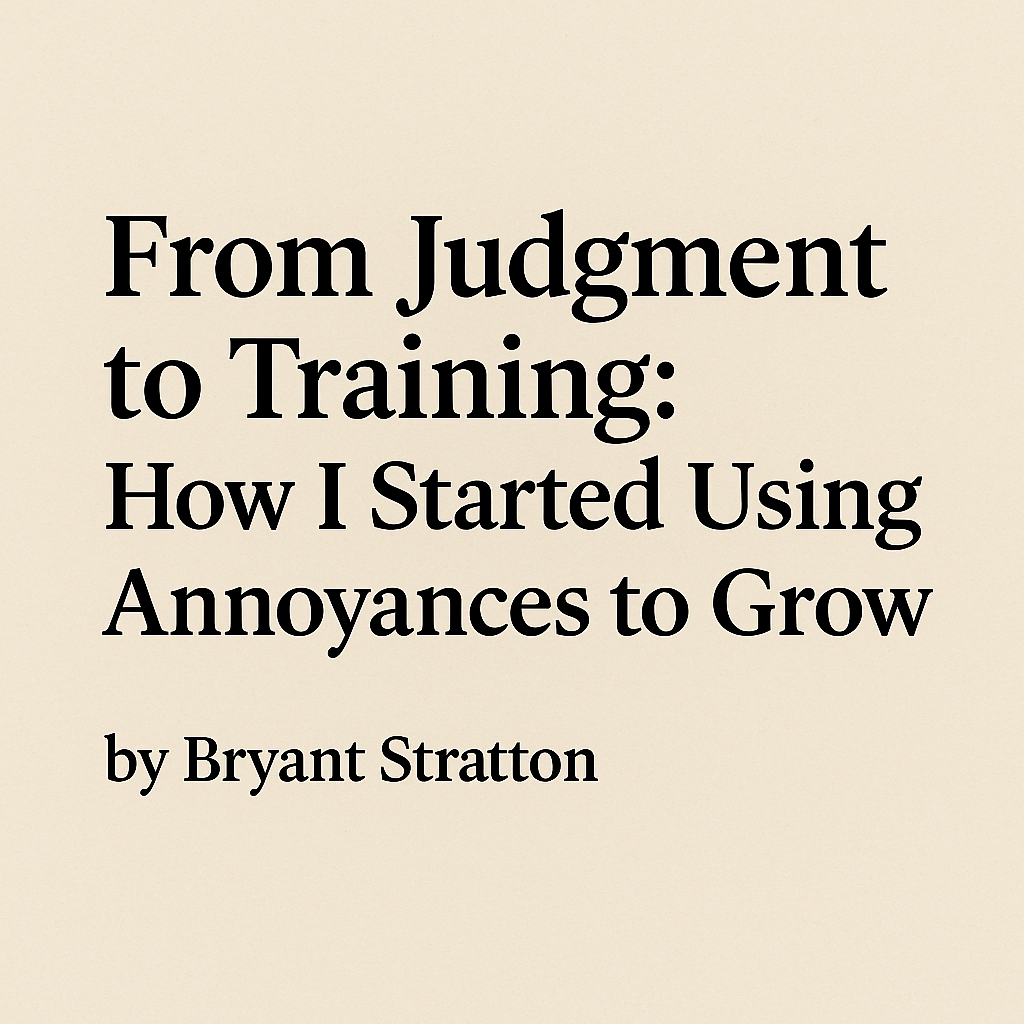
by Bryant Stratton
The other day, a woman looked down at her shoes and said, “I’m wearing really ugly crocs.” Then she turned to me and asked, “Do you have an opinion on crocs?”
I paused. I didn’t want to lie. So I said, “Actually, no—I don’t have an opinion on crocs.”
But then I caught myself.
Wait. That’s not entirely true.
I don’t have a problem with crocs in general.
I have a problem with the chaos crocs cause in my house every morning.
See, in my home, crocs spark debates among my kids that would rival Congress. We’re talking tears, arguments, full-on negotiations. Which pair belongs to who? Where’s the strap? Why are they wet?
So no, I don’t hate crocs.
But I’ve fantasized about putting every single pair in a ceremonial box, lighting incense, and sending them off into the furnace like a Viking funeral—just to end the morning madness.
What’s funny is this used to be the kind of moment that bothered me for another reason too.
I used to get uncomfortable when people focused on what was missing instead of what was within.
When someone pointed out the flaw, the gap, the thing that wasn’t quite right—it rubbed me wrong. I wanted people to see the effort, the presence, the intention behind things, not just the imperfection.
But this little croc moment liberated me of that discomfort.
Because I realized it’s not about the opinion, or the flaw, or even the shoes.
It’s about what gets revealed when something pushes you. It’s about how you respond when life pulls at your edges.
I was reminded of something I’ve learned the hard way:
I can’t grow unless I’m pushed outside my comfort zone.
And I don’t get to choose what pushes me.
That’s the part most people miss. Growth doesn’t always show up as some profound life moment. Sometimes, it shows up in rubber shoes and shrieking toddlers.
That’s when I thought of Musashi and The Book of Five Rings.
Musashi wasn’t just a swordsman—he was a student of reality. He taught that discipline isn’t about seeking comfort. It’s about meeting life exactly as it is and using it to sharpen your awareness, your presence, your form.
When I see that chaos, I can resist it—or I can receive it as training.
The crocs aren’t the enemy. The noise isn’t the enemy.
The enemy is wishing for a smoother ride, when the bumpiness is the path.
So, no, I don’t hate crocs.
I just love what they teach me more.
